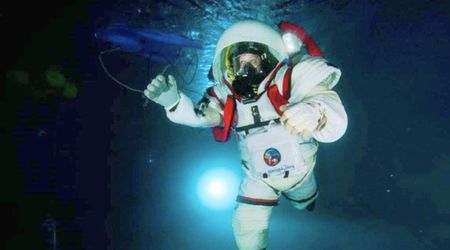Top former NASA science officials oppose Trump's 47 percent budget cut in joint letter to Congress

A unified front of all seven living former Associate Administrators of NASA's Science Mission Directorate has delivered a powerful joint letter to Congress, expressing staunch opposition to President Donald Trump administration's proposed 47% cut to NASA's 2026 science budget. The distinguished group, comprising former leaders of the nation's space science endeavors, is urging lawmakers to reject the proposed reductions and maintain the Science Mission Directorate's funding at its 2025 level, according to Space.com.

In an extraordinary display of consensus, the seven signatories, John Grunsfeld, Alphonso Diaz, Lennard Fisk, Wesley Huntress, Alan Stern, Edward Weiler, and Thomas Zurbuchen, have publicly stated their position. They "unanimously urge Congress to reject the proposed cuts to NASA's budget" and "request that Congress preserve U.S. leadership in space science by maintaining funding for the NASA Science Mission Directorate at the FY 2025 enacted level," according to the letter.

Their letter directly addresses the House Appropriations Committee, warning that such an "indiscriminate cut would impose on the extraordinary U.S. accomplishments and future initiatives." The former chiefs contend that these reductions would "severely damage a peerless and immensely capable engineering and scientific workforce," and "needlessly put to waste billions of dollars of taxpayer investments." A central argument presented in the letter revolves around the United States' standing in the global space arena. The former administrators assert that the budget cuts directly threaten American preeminence. They write, "To do otherwise would be to cede U.S. leadership in space and science to China and other nations."
They highlight the aggressive advancements of international competitors, pointing out that "the Chinese space science program is aggressive, ambitious, and well-funded." They starkly contrast China's ambitious plans with the potential consequences for the US if the proposed budget cuts proceed. The letter notes that China is pursuing "missions to return samples from Mars, explore Neptune, and monitor climate change for the benefit of the Chinese industry and population, and peer into the universe," all areas that the proposal FY 2026 NASA budget suggests the US would abandon.

The former leaders asserted that investments in NASA Science have consistently been a powerful engine for US economic growth and technological leadership. They cited numerous groundbreaking achievements, such as adding sophisticated rovers on Mars with pinpoint accuracy, deploying massive telescopes like the James Webb Space Telescope to unravel cosmic mysteries, and designing spacecraft capable of withstanding extreme conditions near the Sun.

These complex projects, they explained, spur the development of novel technologies, advanced algorithms, and new materials while simultaneously enhancing the expertise of NASA engineers. These innovations, they maintained, offer tangible and measurable benefits to the national economy and security, warning that the proposed cuts would effectively "starve the nation of that unique engine of innovation." The letter also emphasizes the profound impact of NASA's science programs on fostering talent and inspiring future generations. They highlight that "Nearly every science mission supports student participation, providing unique training and career opportunities in aerospace, software design, and other high-demand skills." They also stated, "Turning off active missions, research programs, and ending so many future missions will result in thousands of lost opportunities to cultivate these skills in the nation," as mentioned in the letter.
In their final appeal, the group characterizes "NASA science endeavors" as "exercises in long-term national commitment that pay dividends to the American people." Their "unanimous" message to Congress is a powerful call to action, emphasizing that the "scale of the proposed cuts, their long-term consequences, and the potential loss of human knowledge and inspiration" necessitate rejecting the budget proposal and protecting America's scientific future.









